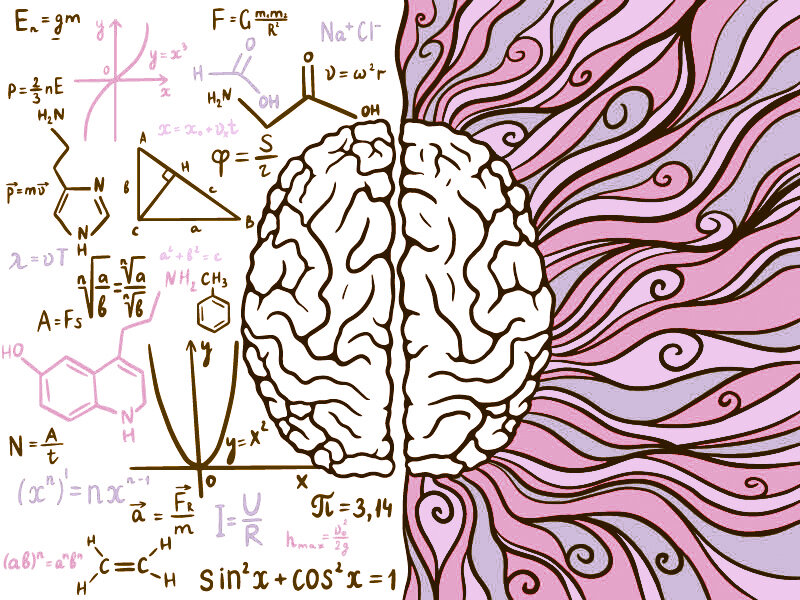Dreams have been a source of fascination and mystery throughout human history. People from different cultures and backgrounds have looked to their dreams for insights, messages, and even prophecies. But what lies beneath the surface of these nightly journeys? In this article, we will explore the connection between dreams and emotional memory, delving into the profound impact that dreams can have on our emotional well-being and memory consolidation.
Understanding Dreams
Before we delve into the realm of emotional memory, let’s first understand what dreams are. Dreams are mental experiences that occur during sleep and are characterized by vivid imagery, emotions, and sometimes a narrative storyline. They primarily occur during the Rapid Eye Movement (REM) stage of sleep, which is associated with increased brain activity and heightened dream experiences. While some dreams may feel random, they can also be influenced by our thoughts, experiences, and emotions from waking life.
Emotional Memory

Emotional memory plays a crucial role in shaping our experiences and responses to various situations. It involves the encoding, storage, and retrieval of memories associated with strong emotional events. When we encounter emotionally charged experiences, the brain releases neurotransmitters that signal the amygdala, a key region involved in emotional processing, to prioritize the memory for storage. As a result, these emotionally significant events tend to be remembered more vividly and for a longer duration than neutral events.
Dream Recall and Emotional Memory
The process of dream recall can significantly influence emotional memory retention. When we wake up from a dream, the memories are often fresh and vivid. However, as time passes, dream memories tend to fade, much like waking memories. Emotional dreams, especially those with intense feelings, are more likely to be remembered than non-emotional dreams. This suggests a potential link between the emotional impact of a dream and the likelihood of its recall. Individuals who regularly recall their dreams may have a stronger emotional memory connection, allowing them to reflect on and explore their emotions in greater depth.
Theories on the Connection
Scientists and researchers have proposed several theories to explain the connection between dreams and emotional memory:
- The Psychoanalytic Perspective: Sigmund Freud, the father of psychoanalysis, believed that dreams provide a gateway to the unconscious mind, where repressed emotions and desires are expressed symbolically. According to Freud, dreams act as a means of wish-fulfillment and can reveal hidden emotions and unresolved conflicts.
- Memory Consolidation During Sleep: Sleep is a critical period for memory consolidation, and emotional memories are no exception. During REM sleep, the brain processes and consolidates emotional experiences, allowing them to be stored and integrated into existing memory networks. Dreams may be a reflection of this ongoing consolidation process.
- Role of the Amygdala: The amygdala, an almond-shaped structure in the brain, plays a central role in processing emotions and emotional memory. It is highly active during REM sleep, suggesting that it may contribute to the emotional content of dreams and their impact on memory consolidation.
- Emotional Regulation and Catharsis: Some researchers propose that dreams serve as a mechanism for emotional regulation and catharsis. Engaging with emotions in dreams allows individuals to process and come to terms with their feelings, leading to emotional release and a sense of resolution.
Case Studies and Research Findings
Several case studies and research findings have shed light on the intricate link between dreams and emotional memory:
- Case Study 1: A woman who experienced recurring nightmares following a traumatic event found that working through the emotions in her dreams with a therapist helped alleviate her distress and improve her overall emotional well-being.
- Research Study 1: A study conducted on college students revealed that those who kept a dream journal and regularly engaged with their dreams showed better emotional regulation and self-awareness.
- Neuroimaging Study: Brain scans of individuals during REM sleep demonstrated increased activity in the amygdala and other emotional processing regions, supporting the idea of emotional memory consolidation during dreams.
Lucid Dreaming and Emotional Memory
Lucid dreaming, a state where the dreamer becomes aware that they are dreaming and can actively participate in the dream, offers a unique opportunity to explore emotional experiences during sleep. By practicing lucid dreaming techniques, individuals can deliberately engage with their emotions in dreams, facilitating emotional processing and potentially leading to personal growth and healing.
Dream Therapy and Emotional Healing
Dream therapy, also known as dream analysis or dream interpretation, has been utilized for centuries as a means of exploring the unconscious mind and facilitating emotional healing. Through dream therapy, individuals can gain insights into their emotional struggles, repressed emotions, and unresolved conflicts. Therapists work with clients to interpret dream symbols, emotions, and narratives, enabling them to better understand themselves and their emotional experiences.
Nightmares and Traumatic Emotional Memories
Nightmares can often be associated with traumatic emotional memories. For individuals who have experienced trauma, nightmares may serve as a way for the brain to process and attempt to resolve the emotional impact of these events. Coping strategies such as relaxation techniques, grounding exercises, and imagery rehearsal have been found helpful in reducing the distress caused by recurrent emotional nightmares.
Enhancing Emotional Memory through Dream Journaling
Dream journaling is a powerful tool for enhancing emotional memory through dreams. By recording dreams immediately upon waking, individuals can capture the emotional content and vivid details of their dreams. Regularly reviewing dream journals can help identify recurring themes, emotions, and unresolved issues, providing valuable insights into one’s emotional landscape and facilitating emotional growth and understanding.
Practical Applications and Future Implications
Understanding the connection between dreams and emotional memory can have practical applications in various fields:
- Mental Health Treatment: Incorporating dream analysis and dream therapy into mental health treatment plans may offer additional avenues for emotional healing and growth.
- Emotional Well-Being: Encouraging individuals to explore their dreams and emotions can promote self-awareness, emotional regulation, and overall well-being.
As research in this area continues to evolve, we can expect exciting advancements in our understanding of dreams, emotional memory, and their profound impact on our lives.
Conclusion
Dreams and emotional memory are intertwined in ways that continue to captivate and elude us. As we explore the hidden depths of our dreams, we uncover a wealth of emotional experiences and insights into our inner selves. Embracing our dreams as a powerful tool for emotional exploration and healing can lead to a richer understanding of ourselves and the complex interplay between our conscious and unconscious minds.

Greetings and welcome to my corner of the dreamscape! I am Ethan Sterling, a dedicated and passionate Dreams Specialist on a profound journey of exploring the depths of the subconscious mind. For years, I have immersed myself in the study of dreams, their intricate meanings, and the transformative power they hold for emotional and spiritual healing. More

